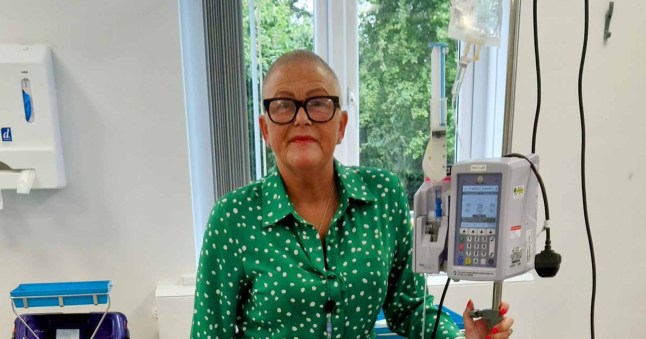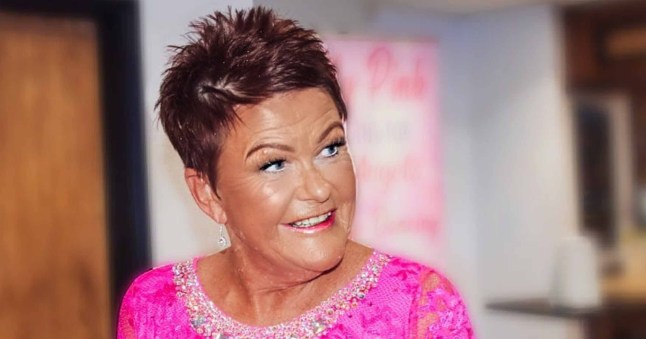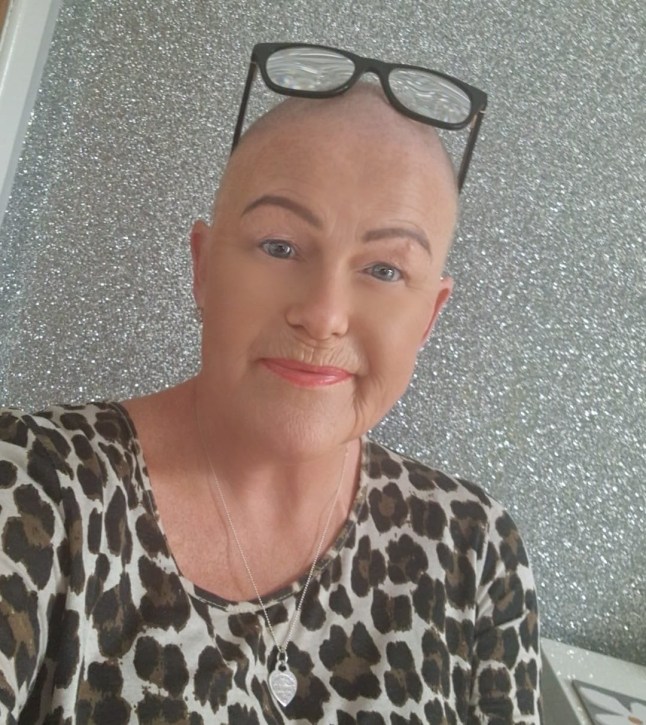
‘You’re going to die anyway, so why throw more money at you?’
Those are the words Tracie Townsend-Mills says echoed in her head when it was recently announced that a life-extending breast cancer drug won’t be available on the NHS due to company pricing.
The mum of two from Rugby has been undergoing treatment for cancer for the past 11 years after first being diagnosed in 2013 with ductal carcinoma (DCIS).
Then, six years ago, Tracie, 54, got the devastating news that the disease had spread to her lymph nodes, chest wall and lungs.
During the past decade, she had undergone a multitude of treatments, including chemotherapy and radiotherapy, in an attempt to keep the cancer at bay. However, by the end of last year they no longer were effective and Tracie was left with no further viable options.
Her only hope was a game-changing toxic cancer drug that could potentially be available on the NHS by the time she needed it.

Called Enhertu, it is the first licensed targeted treatment for patients with HER2-low breast cancer that cannot be removed surgically or that has spread to other parts of the body, also known as metastatic breast cancer, and has been shown to lengthen a patient’s life span for much longer than traditional treatments such as chemotherapy.
For Tracie and thousands of other women in England, Wales and Northern Ireland, it would offer a lifeline.
However, this week the National Institute for Health and Care Excellence (Nice) published final guidance stating that drug makers Daiichi Sankyo and partner company AstraZeneca had been ‘unwilling to offer a price that would enable NICE to recommend Enhertu as cost effective for the NHS’.
Recalling the moment she heard the news, Tracie says: ‘I burst into tears. I think I’ve cried for 48 hours out of the last 72. That’s it. No more treatments for me.
‘We’ve got a drug out there that’s being used in the in Scotland for HER-2 positive patients. This decision feels like they’re putting a label on your head that says “You’re not worth it. You’re not cost effective”. That’s how it feels.’
According to the charity Breast Cancer Now, the drugs offer women six more months to live.
For Tracie, that could mean the chance to ‘grab every second of life I can with friends and family,’ she explains. ‘To go on trips, days out and maybe even a holiday.’

Although the ‘game-changing’ drug is available in Scotland, Breast Cancer Now said in a statement following the decision that this week’s announcement has left patients in England, Wales and NI caught in the middle of a ‘stand-off about cost and the system which is denying them precious hope of more time to live.’
Tracie adds that since she heard about the decision, she has been reaching out to other clinical trials in hopes of getting more time. However, each time, she was told she didn’t qualify, which felt like being told she ‘wasn’t worth it’ yet again.
‘How can somebody in the NHS know what time is worth to me? They don’t know my life, they don’t know my story. They don’t know how much I put in after 11 years,’ she tells Metro.
‘I’ve lost too many friends within the cancer world and I’ve watched them all go before me. On my last round of chemo, I was sitting in the chair and I just thought, “What do I do now?”.

‘Never in a million years did I think I’d want to be back in the ‘cancer club’. But knowing that there is a drug out there that could give me more time, I would take being sick, I would take the suffering and the horrible symptoms to get more time. But I’m being told I’m not worth it.’
Tracie has accepted she’s going to die. Nobody gets away from metastatic cancer, she says.
‘But this drug can change the future of thousands of women. Some don’t need it right now, but some might in the future.
‘I and many others need it now. All we want is more time.’
How to check for signs of breast cancer
CoppaFeel! offers these simple steps on how to check your own chest for signs of cancer.
Look
- Look at your boobs, pecs or chest.
- Look at the area from your armpit, across and beneath your boobs, pecs or chest, and up to your collarbone.
Be aware of any changes in size, outline or shape and changes in skin such as puckering or dimpling.
Feel
- Feel each of your boobs, pecs or chest.
- Feel the area from your armpit, across and beneath your boobs, pecs or chest, and up to your collarbone.
Be aware of any changes in skin such as puckering or dimpling, or any lumps, bumps or skin thickening which are different from the opposite side.
Notice your nipples
- Look at each of your nipples.
Be aware of any nipple discharge that’s not milky, any bleeding from the nipple, any rash or crusting on or around your nipple area that doesn’t heal easily and any change in the position of your nipple
Tracie has helped raise £128,000 for the NHS with her charity, Arden’s Angels. She’s also reached out to her local MP multiple times and the health secretary, Wes Streeting – neither have replied.
Meanwhile, the charity Breast Cancer Now has spent months campaigning – including a stint in the heart of Westminster which saw women, inlcuding Loose Women’s Nadia Sawalha, pose topless in support of allowing the life-saving drug in the NHS.
The National Institute for Health and Care Excellence (Nice) – which recommends which drugs to put on the NHS – said it is ‘deeply disappointed’ it was unable to recommend Enhertu due to company pricing after their decision was published.
More Trending
Had they recommended the treatment, about thousands of patients per year would have been eligible.
Meanwhile, the companies behind the drug said they ‘disagree with’ the decision by the NHS spending watchdog and called for it to ‘evolve’ the way treatments are assessed for patients in England.
Interim chief executive of Breast Cancer Now, Rachael Franklin, added: ‘The heartbreaking but inescapable reality is that these women don’t have time to wait.’
‘At this point, I just want more time,’ says Tracie. ‘That’s all I want. I know it’s not going to save me, but I want more time.’
Get in touch with our news team by emailing us at webnews@metro.co.uk.
For more stories like this, check our news page.
MORE: Millions are at greater risk of dementia simply from breathing
MORE: This one thing we all do on holiday could land you in hospital
MORE: My husband divorced me so I turned to weight loss drugs — now I’ve met 150 men












